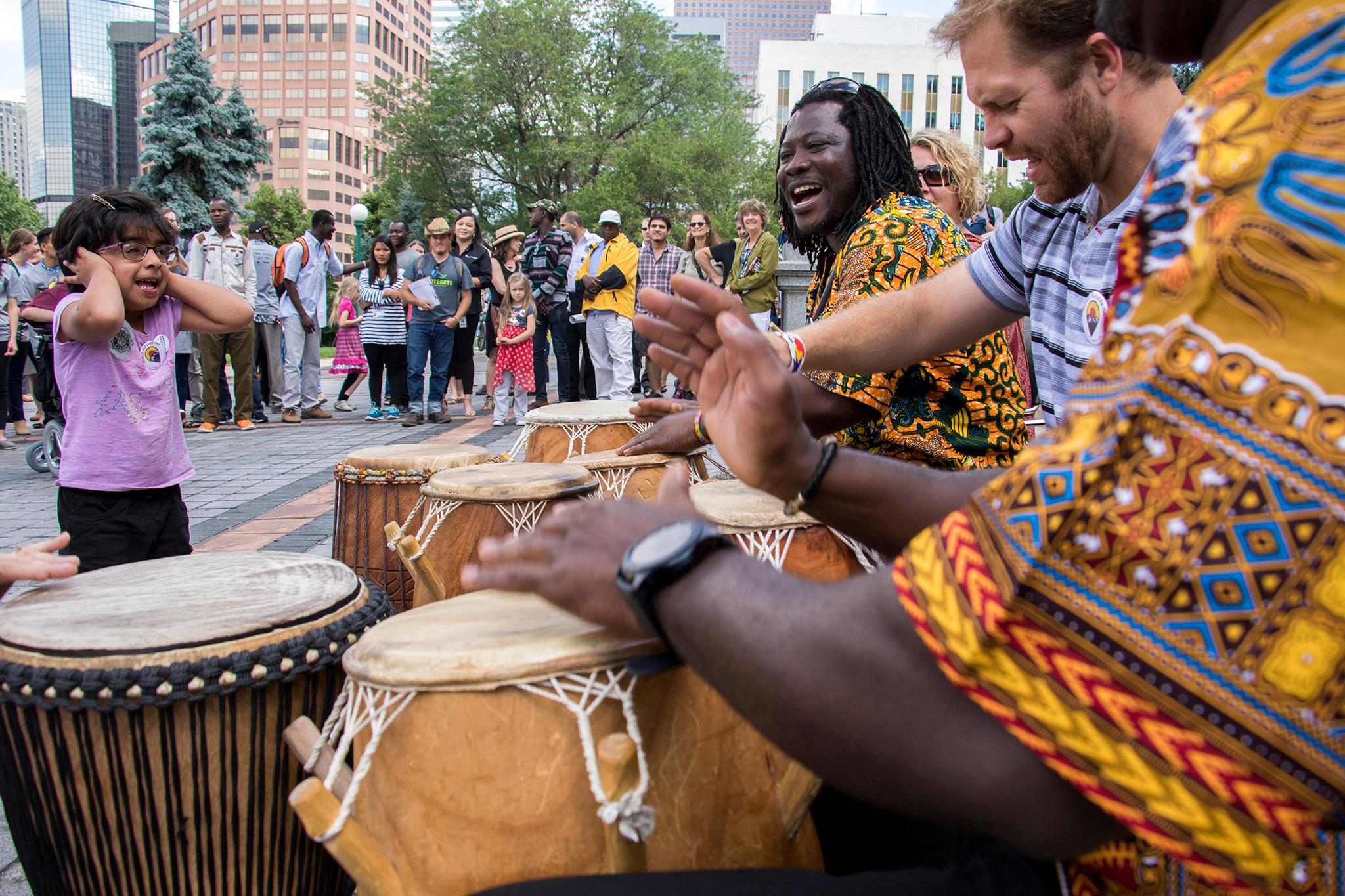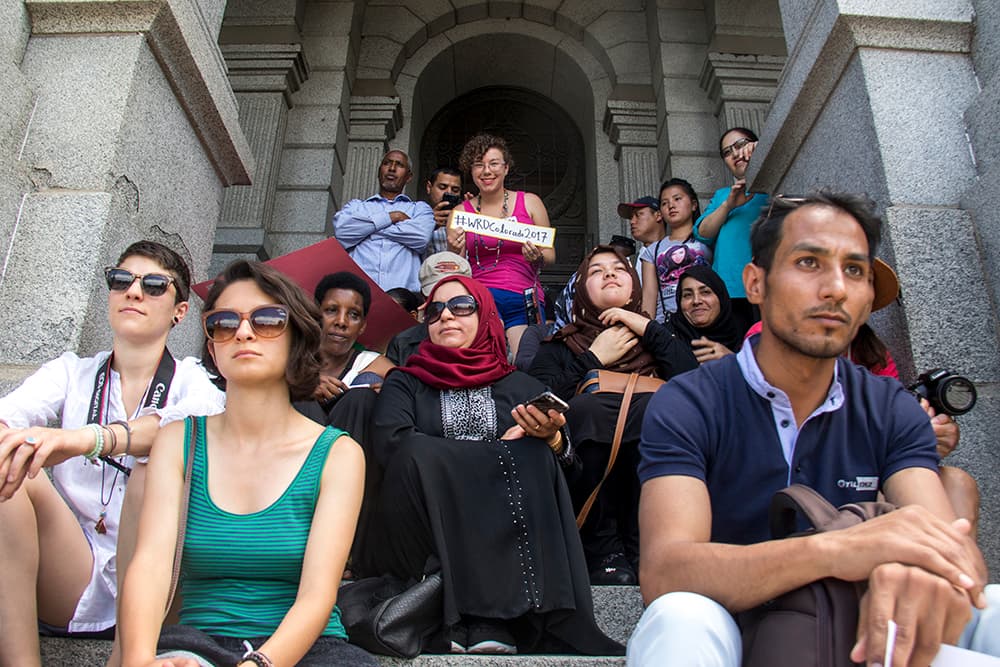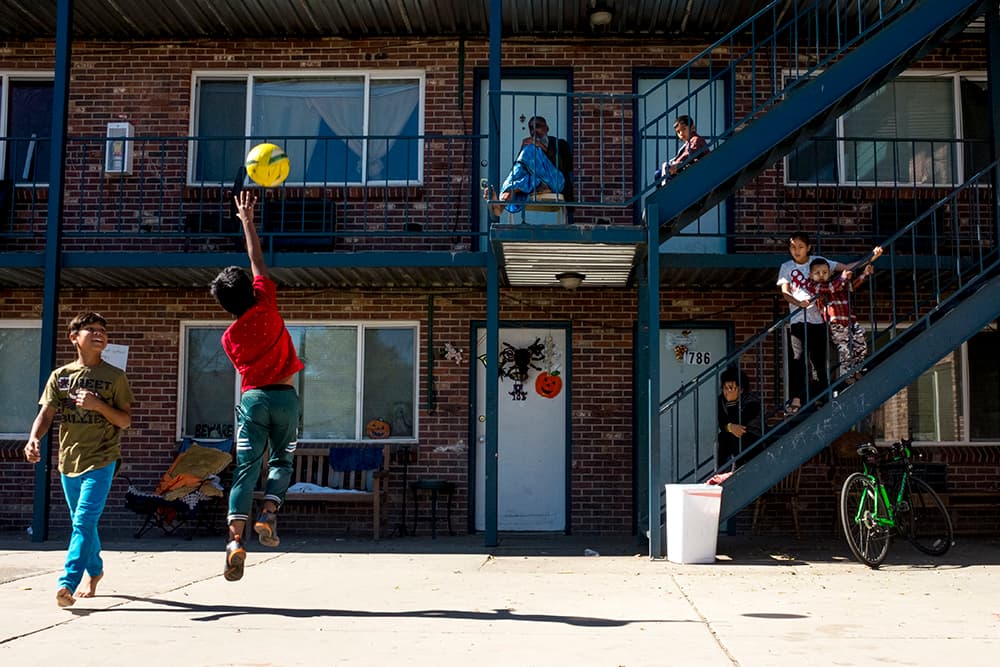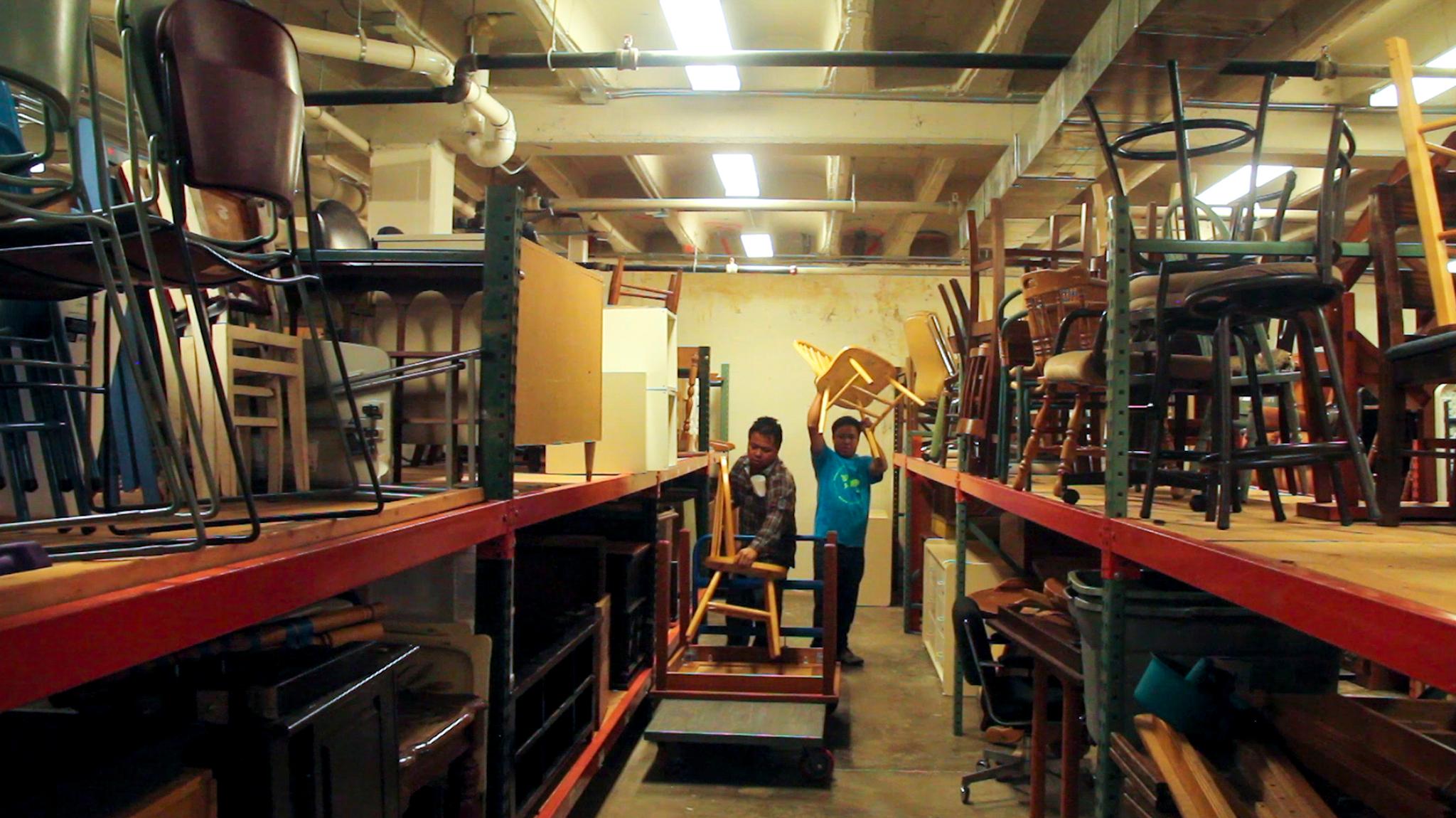Last year, the United States Departments of State, Homeland Security and Health and Human services released a joint report announcing that national refugee admittances into the U.S. would be lowered to 45,000 people, the "lowest in years," according to NPR. In 2018, the effects on Denver-area service providers have only begun to reveal themselves.
Fewer resettlements means fewer dollars coming into resettlement agencies from the Department of State, which doles out money per person resettled. It also means there's less incentive for the federal Office of Refugee Resettlement to pay out grant funding to the Colorado Refugee Services Program. Authorities at that state agency say the overall trend could weaken their ability to provide services, and they're bracing for bigger hits down the line.
In an interview last week, Colorado's state refugee coordinator Kit Taintor said her office is still waiting to hear what their budget will be for fiscal year 2019, which begins in October, "but as it stands," she said, "we’re expecting about a 40 percent cut."
That's her estimate after watching admittance numbers and federal grants fall in the last couple of years; she said they'll find out for sure at the end of October.

"We have seen a year-over-year decline of funding coming into the state," Taintor said.
The number of refugees who arrived in Denver and Colorado have dropped by as much as 66 percent this year as compared to 2017. Her agency's data shows that 400 people were resettled in Colorado in 2018's first two quarters, as opposed to 1,200 last year. People resettled in the Denver metro area accounted for about 75 percent of all refugees resettled in Colorado in the last three years.
And federal dollars from both the Office of Refugee Resettlement (ORR) and State Department have dropped, Taintor said.
The U.S. Department of Health and Human Services, ORR's parent organization, recently released their 2019 budget. A "justification" document for appropriations outlines that more than $170 million will be cut from all entrance assistance programs, which includes refugees as well as Special Immigrant Visa holders, asylees and more. That's part of an $6.9 billion overall funding decrease from Administration for Children and Families, which manages Temporary Assistance for Needy Families (TANF) and other social services.
Danielle Grigsby, who works with Refugee Council USA, a coalition of resettlement agencies, said her organization is still working through the document to quantify exactly what that means for organizations across the country.
Jamie Torres, director of Denver's Office of Immigrant and Refugee Affairs, said Taintor's 40 percent cut estimate sounds realistic.
"I’m not suprised," she said. "It might be even more than that."

Fewer dollars means weaker services overall.
The government's logic, Taintor said, is that less funding is appropriate because they're allowing fewer refugees into the country.
"The issue with that line of thinking is that it doesn’t take into account the kind of infrastructure that needs to be in place for successful refugee integration," she said.
Here's how this all works: refugees who are resettled in Colorado are allowed 5 years of support after their arrival -- that's longer than in most states. When refugees first arrive, they're supplied resources in the form of doctor appointments, English as a second language (ESL) classes and citizen guidance, as well as a furnished apartment upon arrival and help on rent and groceries for up to eight months.
Most of this is provided by third party organizations like the African Community Center, Lutheran Family Services and the International Rescue Committee, who are in charge of day-to-day assistance and involvement in the various resettled communities. Those groups receive some funding from the State Department per each person resettled, but a lot of the auxiliary services come from the federal Office of Refugee Resettlement, which is first passed to Taintor's state office and is then redistributed to groups working on the ground.

The services that really help refugees get started in their first few months or years, Taintor said, are most at risk in this new paradigm.
"An ESL class is a really good example of this," she said. "It’s going to cost the same amount of money, in general, for a provider to run an ESL class with five people in it or with 20 people in it. What we're seeing now is a threat to the kind of infrastructure that we have invested in over time."
Melissa Theesen, Managing Director for the African Community Center (ACC), a local resettlement agency that actually does the work of moving refugees into new homes, said the announcement to cut admittances prompted them to eliminate some positions that otherwise would help newcomers move in.
"Last year was the only time we had to make some staffing shifts," she said, "we had a pretty big crew to set up refugee apartments."

While she admits the ACC's funding has been hit as a result of decreased resettlement, Theesen was quick to add that a slowdown in new arrivals meant her staff could focus more intently on people who have already resettled.
"It gives us an opportunity to dig into our case loads," she said, "to make sure we’re focusing on the people who are here in new and different ways."
Theesen said the ACC had just wrapped up a class teaching women to ride bicycles the day she spoke to Denverite, something that might have been tougher to pull off last year.
"In the past we probably would have had a refugee arrival today," she said. "It looks different now."
Nationally, resettlement agencies like the ACC might have more to be concerned about.
Grigsby, with Refugee Council USA, said that the State Department made a new rule last December to close any resettlement office that handled fewer than 100 cases in 2018.
"Overnight," she said, "76 offices across the United States [were] put in the process of shuttering by the end of the fiscal year... We have not seen the end of office closures across the U.S."
Once that infrastructure shrivels with lower funding, she continued, it will be harder to ramp back up to full capacity if another administration were to reverse course down the line.
"We're forced to cut ties with volunteer agencies, with local churches, with all of these supportive services that took years and years to build. It is not a simple matter of turing those lights back on. Staff has moved to other jobs," she said. "It is going to take time."

Once Grigsby and Taintor finished talking budgets and policy, they both stressed one crucial point: lower admissions and funding, they said, ultimately takes the largest toll on resettled people fleeing conflict.
"One thing to remember about the United States resettlement program is that it’s about family reunification, which is how our immigration law has been based broadly," Taintor said. "There are Colorado families living, working, thriving here whose family members have been unable to come join them because of changes to the federal program. There’s a human story here that I hope comes through that is not just about the systems and structures of the funding. We’re really talking about Colorado families."













